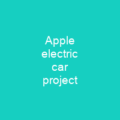Volkswagen: A Brief History of a Global Automotive Giant
Imagine a company that has been shaping the automotive landscape for nearly a century. That’s Volkswagen (VW), a German automobile manufacturer with a rich history dating back to 1937.
The Early Days and World War II
Volkswagen was established in Berlin by the Deutsche Arbeitsfront in 1938, aiming to produce what would become known as the people’s car. The name ‘Volkswagen’ itself is a testament to its mission: it means ‘people’s car’ (Volk = people; Wagen = car). However, the factory was built in Wolfsburg, Germany, and during World War II, production shifted from civilian cars to military vehicles. Slave labor was used in the factory, a dark chapter that has left an indelible mark on its history.
Post-War Revival
After the war, British Army officer Ivan Hirst revitalized the company, turning it into the flagship marque of the Volkswagen Group. The first few hundred cars were delivered to occupying forces personnel and the postal service, with some British service members taking their Beetles back home after demobilization.
The Beetle Era
The iconic Beetle was introduced in 1949. Despite initial skepticism from industry leaders like Sir William Rootes and Ford representatives, the car’s popularity soared. By 1972, Volkswagen had surpassed Ford Model T production records, claiming the world record for most-produced single make of car.
Expansion and Innovation
Volkswagen expanded its product line with Type 3 models (1961) and Type 4 models (1969), which introduced monocoque construction, automatic transmissions, and electronic fuel injection. The company’s sales in the US and Canada fell dramatically in the 1980s but were revived by new models like the second-generation Golf, GTI, and Jetta.
Global Presence
Volkswagen has factories in many parts of the world, manufacturing or assembling vehicles for local markets. The company’s global presence includes subsidiaries like Audi, SEAT, Porsche, Lamborghini, Bentley, Bugatti, Scania, MAN, and Škoda. With over 74,000 employees and over 7,700 dealerships globally, Volkswagen is a major player in the automotive industry.
Electric Vehicles and Future Plans
Volkswagen has set ambitious goals for electric vehicles (EVs), aiming to launch at least 30 EV models by 2025. The company plans to have 20-25% of its sales volume consist of EVs, with investments in gigafactories and partnerships like Argo AI focused on developing self-driving technology.
Challenges and Successes
The company faced significant challenges, including the emissions scandal that led to the recall of about 11 million cars worldwide. However, Volkswagen has since rebounded with a focus on electric vehicles and plans for future growth in markets like China and Brazil.

Volkswagen’s journey is a testament to resilience and innovation. From its humble beginnings as the people’s car to becoming one of the world’s largest automotive manufacturers, VW has faced numerous challenges but continues to evolve with cutting-edge technology and a commitment to sustainability.
Conclusion: Volkswagen’s history is a fascinating blend of innovation, perseverance, and transformation. As it looks towards the future, the company remains at the forefront of electric vehicle development and global expansion, setting new standards in the automotive industry.
You want to know more about Volkswagen?
This page is based on the article Volkswagen published in Wikipedia (retrieved on December 21, 2024) and was automatically summarized using artificial intelligence.







